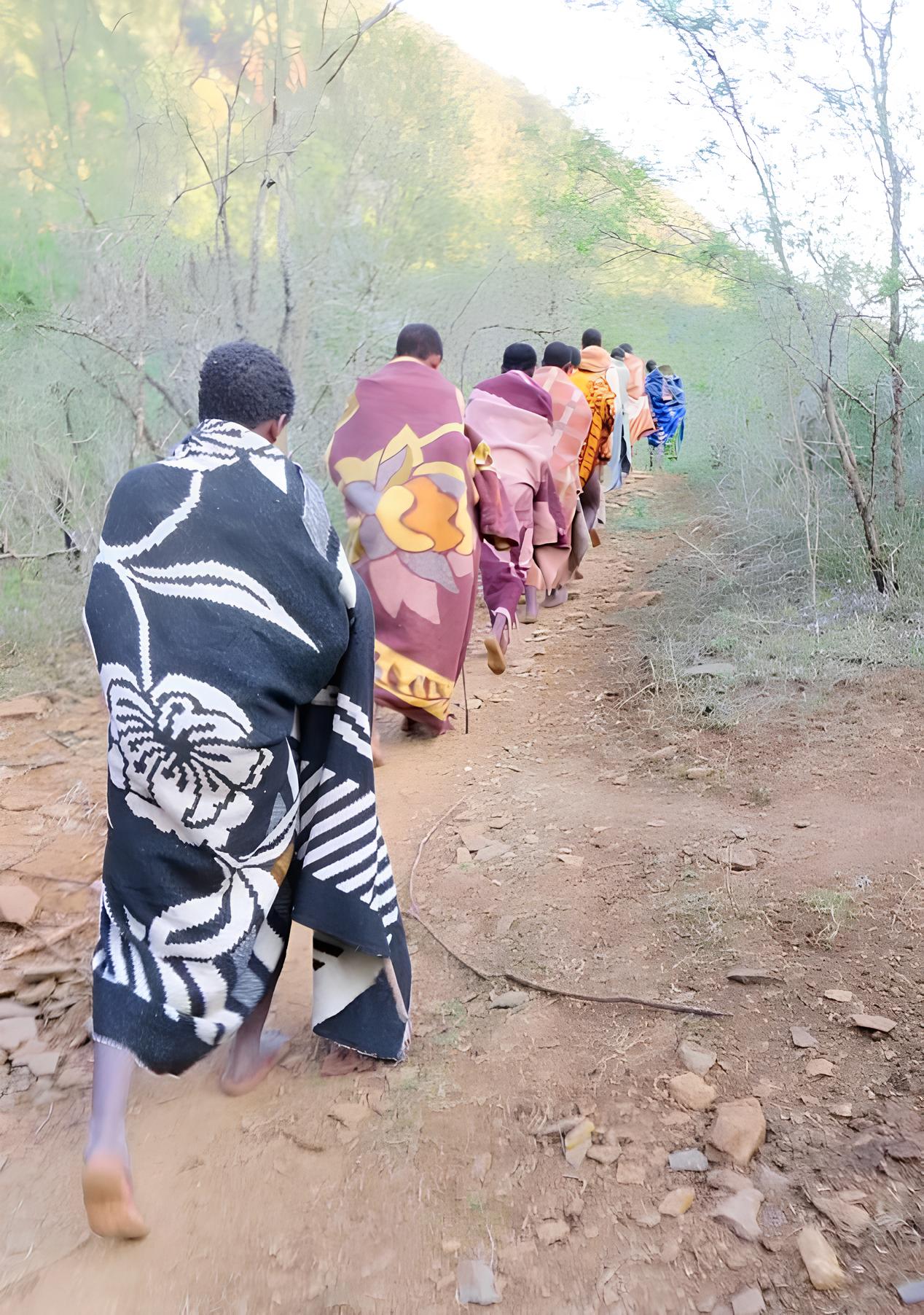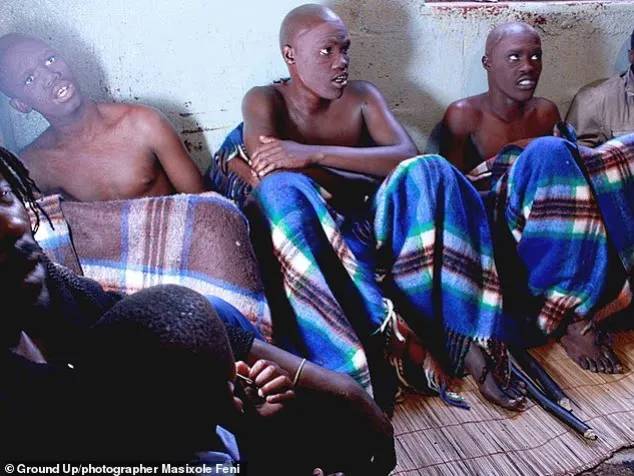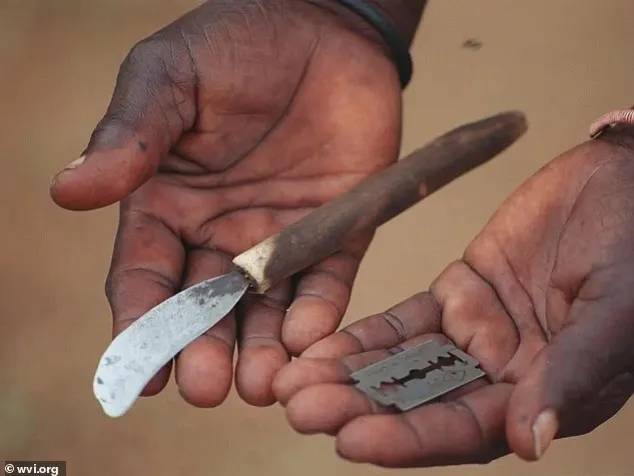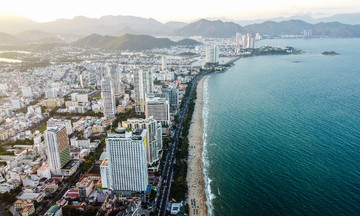On 31/7, the aftermath of the Xhosa coming-of-age ritual in the Eastern Cape province once again shocked the public. 39 teenagers died, and dozens of others were permanently injured. This number is down from 93 deaths last year, but in the past 5 years, 361 boys have died because of this ritual.
Tissue necrosis, sepsis, and dehydration are the main causes of death. Some boys who quit midway through the ritual were beaten and drowned; many were forced not to drink water after the circumcision to avoid urinating, leading to severe dehydration.
Since 2020, after each three-month ritual, which takes place twice a year, thousands of teenagers have been hospitalized. Even if they survive, many suffer pain and lifelong complications.
 |
Xhosa youths are taken to "initiation schools" for three months to learn coming-of-age rituals and undergo circumcision. Photo: WVI |
Xhosa youths are taken to "initiation schools" for three months to learn coming-of-age rituals and undergo circumcision. Photo: WVI
The Xhosa tribe is one of the largest ethnic communities in South Africa, with about 10 million people, mainly concentrated in the Eastern Cape province.
In Xhosa society, the Ulwaluko ritual (traditional circumcision) is considered an important transition from adolescence to adulthood. It carries not only religious and cultural significance, but also determines a man's social standing.
Those who do not undergo Ulwaluko are considered "not yet men" and are excluded from many community activities, from meetings and decision-making to marriage. The rituals always take place secretly in "initiation schools," which are huts built separately from the village, with only elders and young men participating.
Faced with the high mortality rate, the local government this year set a goal of "zero deaths," but it has not been effective. Medical experts say the risk of infection is high because untrained "circumcisers" reuse instruments without sterilizing them.
South Africa enacted the Traditional Circumcision Act in 2001, requiring training and licensing of practitioners, but enforcement is weak.
Sipho Mahlangu, Deputy Chairperson of the National House of Traditional Leaders of South Africa, said 80% of the deaths and serious injuries originate from illegal initiation schools. The government aims to halve the number of these facilities by 2029, from 429 currently to around 200.
Sipho also said that although boys theoretically have the right to choose, anyone who refuses the ritual is called Inkwenkwe—a grave insult. Xhosa elders even consider death to be a necessary sacrifice and accuse the government of disrespecting their culture.
 |
Teenagers in South Africa prepare for the circumcision ritual. Photo: WVI |
Teenagers in South Africa prepare for the circumcision ritual. Photo: WVI
Humanitarian organizations in South Africa regularly condemn this tribal initiation ritual, arguing that the imposed practice, without individual consent, violates children's rights, especially with the lack of anesthesia and medical supervision. But "customary law still prevails over state law."
19-year-old Scotty Dawka, despite knowing the risks, participated because he wanted to be recognized as a man. "I was very scared, but most of my friends went through it. The experience was extremely painful, I became very ill, but luckily I survived," he recounted.
Many Xhosa people acknowledge the poor sanitary conditions, but say that following medical procedures costs about 500 rand (more than 700,000 VND), beyond their financial capacity, so they are forced to rely on local "circumcisers."
 |
Circumcisers use unsterilized instruments and share them among multiple people. Photo: WVI |
Circumcisers use unsterilized instruments and share them among multiple people. Photo: WVI
Former South African President Nelson Mandela once wrote about the spiritual significance of the circumcision ritual he underwent as a teenager. However, anyone who has participated is bound by an oath of secrecy; revealing details could lead to them being seen as traitors, and being beaten or killed.
Bao Nhien (According to Mirror)












